Colorado’s third annual Inno on Fire list is here.
Today, we’re announcing the 50 companies that are making noise across the Colorado tech and startup ecosystem. Over the next few weeks, we’ll spotlight a few of these companies in stories and in our newsletter, The Beat.
At an event on Oct. 19, we’ll announce the eight companies, one from each category, that a panel of esteemed judges has selected as the Inno Blazer winners, or category winners.
Now, what makes a company or individual on fire? We’re looking at startups that have had a banner year. People and companies that brought on new funding, launched products, made hires or offered an innovative approach to solving the most challenging problems. Inno on Fire is designed to showcase those who are making the biggest impact on our local ecosystem.
This year's winners span industries from health tech to hardware to the outdoors, with some just getting off the ground and others with years of progress at their backs.
Winners were sourced by nominations and selected by the Colorado Inno editorial team.
Early stage (up to five years old)
Demoflow
In a sales ecosystem now dominated by virtual presentations, Demoflow was well-positioned to step up during the Covid-19 pandemic. Demoflow, founded by Larson Stair and Jack Collins, is a remote sales platform that integrates with platforms like Zoom, Salesforce and Slack. After completing Techstars Boulder’s program in 2020, the company has raised nearly $4 million in outside funding to build out its platform and team. The most recent seed funding was led by RTP Seed and included participation from the Slack Fund, First Mile Ventures, Next Frontier Capital and Heroic Ventures.
AgentSync
Since moving to Denver in early 2020 from the Bay Area, insurance technology startup AgentSync has grown its staff from about a dozen employees to nearly 100, raised $36 million in funding and, now, opened a new office in Denver's River North Art District. The company is building tools and infrastructure for the insurance industry, aiming to increase efficiency and reduce the barriers to entry for insurtech firms. The company, founded in 2018 by husband and wife duo Niranjan Sabharwal and Jenn Knight, expects to have nearly 115 employees by the end of this fiscal year and somewhere around 175 by the end of 2022.
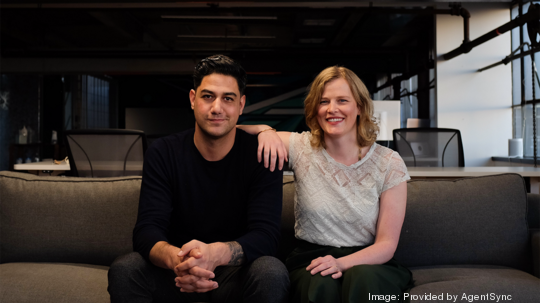
Spekit
Founded in 2018 by CEO Melanie Fellay and Zari Zahra, Spekit has built a platform that gives employees answers to their most common questions. Spekit’s platform offers contextual training, processes and guidance within the applications that employees use every day. With a need for virtual training solutions, the company saw 400% growth in year-over-year revenue in 2020 as companies like Uber Freight, Southwest Airlines and Databricks joined the platform. In March, Spekit announced the close of a $12.2 million Series A investment round, led by Foundry Group and Renegade Partners, with participation from Operator Collective, Matchstick Ventures and Bonfire Ventures. The round brought the company’s total fundraising to $15.7 million.
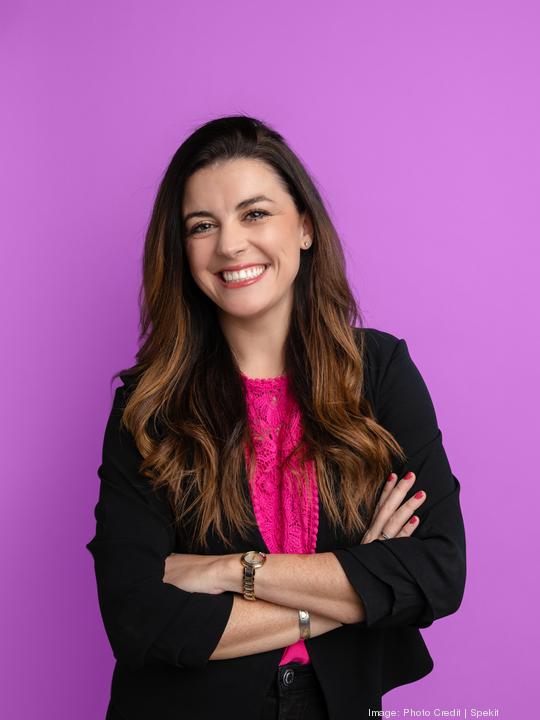
Good Buy Gear
Earlier this year, Denver-based child gear recommerce startup Good Buy Gear made a move to the East Coast that doubled its inventory and marked a crucial step in the company’s nationwide growth. Good Buy Gear, an online marketplace for parents to buy and sell used gear, announced its expansion to Philadelphia in August with the opening of its largest distribution location. The company, founded by Kristin Langenfeld and Jessica Crothers, closed a $6 million Series A funding round in October 2020 to grow its product and team and fuel expansion efforts.
Accept.inc
Since launching in 2019, the company has rapidly grown in the real estate technology industry as it aims to simplify real estate transactions. Two years after its launch, Accept.inc has scaled quickly and raised $90 million in debt and equity capital this year to scale its platform, double its team and expand to new markets. Accept.inc is a technology-enabled lender that helps buyers who qualify for a mortgage submit all-cash offers on a home at no additional cost. At the time of its fundraise in June, the company had grown to about 90 employees. It started 2020 with only eight.
Guest House
Tabbed as the "Postmates for staging" homes, Denver-based Guest House has built a tech-enabled solution that is shaking up the market. The company has three core pillars to its business: stage, shop and sell. Interior designers provide in-person installations at for-sale homes using products from brands including Crate & Barrel, Joybird, Burrow and hundreds of local makers. As an added bonus, Guest House also offers free listing photography. And for people viewing the homes, all the products used for staging are for sale. Guest House, which was founded in 2016 by Alex Ryden, announced in June that it raised a $3 million seed funding round led by Denver’s Range Ventures.
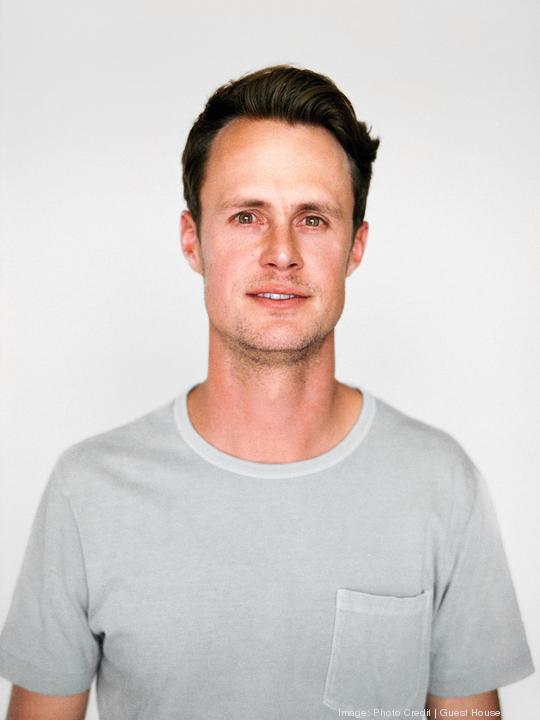
Tilled
In May, Boulder startup Tilled brought on an $11 million Series A round to rapidly accelerate the growth of its team and expand internationally. The company, which was founded in 2019 by Caleb Avery, helps software companies make money off of the payments they process. Tilled’s solution allows its clients to operate like their own fully registered payment facilitator, giving them the ability to monetize their payments and keep 66% of that revenue share.
Established (more than five years old)
Pax8
The past 18 months have been a whirlwind for fast-growing Denver technology company Pax8. In that time, the company has doubled its staff to nearly 850 employees across the country, brought on one of the largest equity funding rounds in Colorado history and made a series of acquisitions to assist in its international expansion. The company’s growth was fueled by a widening demand for the cloud products Pax8 provides for IT professionals. In addition to that demand, the $96 million equity funding round the company raised in January has contributed to its future planning.
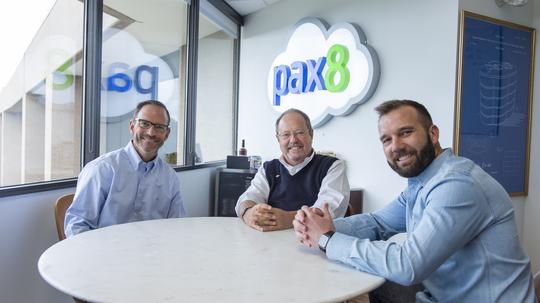
Forge Nano
In just the past year, energy storage materials company Forge Nano has moved into a new headquarters, joined a consortium to improve battery technology and gone to space. The company’s new 40,000-square-foot facility in Thornton houses an atomic layer deposition research and development lab and will also serve as a production facility for Forge Nano's line of industrial solutions. Following that, Forge announced that its lithium-ion batteries were successfully launched into orbit as part of a SpaceX mission on June 20. The batteries were sent to space aboard a satellite and will be tracked to determine their electrical performance in a space environment.
ColdQuanta
In a fast-growing and competitive space like quantum, Boulder’s ColdQuanta has been on fire. Ex-Zayo Group Holdings CEO Dan Caruso joined ColdQuanta as executive chairman and interim CEO in March as the company searched for a permanent leader. In August, the company found that person in the form of newly appointed CEO Scott Faris. Since November 2020, ColdQuanta has raised $52 million in outside funding as it prepares to bring its unique quantum technology to market. The company expects to launch Hilbert 1.0, a cloud-based 100 qubit quantum computer, in late 2021.
Quantum Metric
In the first week of January, Quantum Metric became Colorado’s first unicorn of 2021. Coming off a booming year of business that included a doubled staff and revenue, the Colorado-based company announced $200 million in Series B financing led by Insight Partners at a valuation exceeding $1 billion on Jan. 7. The company has scaled massively since its 2015 founding by Mario Ciabarra and its continuous product design technology has attracted customers like Neiman Marcus, Lenovo, Alaska Airlines, Lululemon and more.
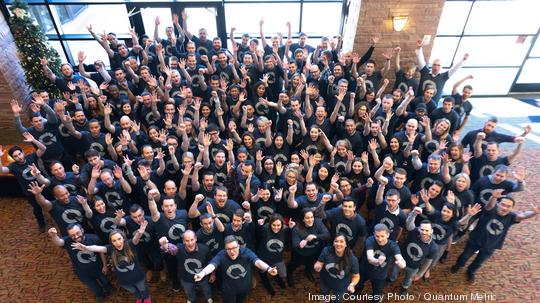
Stream
Just six months after it closed a $15 million Series A to grow its in-app messaging solution, Boulder startup Stream was back with another raise earlier this year that fueled its growing customer base. The company announced in March that it raised a $38 million Series B funding round, led by Felicis Ventures’ Aydin Senkut, with participation from Series A lead investor GGV Capital and 01 Advisors. Stream provides APIs which enable product teams to build chat and activity feeds for their applications quicker and cheaper than in-house development. Customers include TaskRabbit, NBC Sports, Unilever and more.
Guild Education
Huge funding rounds and high-profile partnerships characterize Guild’s busy last 12 months. The education upskilling company cemented its unicorn status with a $150 million Series E financing round in June, bringing its valuation to roughly $3.75 billion. The company first hit unicorn status following its Series D financing round in November 2019. And, earlier in 2021, Guild announced a partnership with Target to offer 340,000 of the retailer’s U.S. frontline workers a debt-free education-assistance program. All part-time and full-time Target employees will qualify for company assistance for select undergraduate degrees, certificates and textbooks.

AdCellerant
While the Covid-19 pandemic marked a challenging time for AdCellerant’s business and bottom line, the digital marketing and advertising company persevered over the past 12 months. The company made the Inc. 5000 list of the fastest-growing U.S. companies for the fourth consecutive year, checking in at No. 1929. The company was also named a winner in the 2021 Excellence in Customer Service Award presented by the Business Intelligence Group.
Hardware / Physical Products
Roxbox
A few years after launching, Denver shipping container startup Roxbox has grown past its mobile bar roots to offer a line of solutions for a variety of industries. The company now offers outdoor dining options, modular office construction, bitcoin mining and much more. As the need for its modular construction has grown over the last year, Roxbox has moved its headquarters from a 4,800 square foot production facility to a 30,000 square foot production facility, expanding from two production bays to 18. The company has also boosted its staff from four employees to more than 25 and partnered with companies like Adidas and Left Hand Brewing Company on projects.
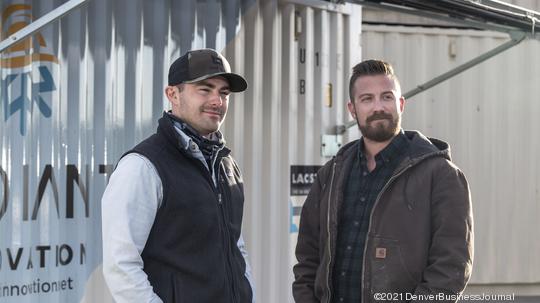
PURO Lighting
Less than two years since its founding, PURO Lighting has found and its niche in the disinfection space. The company made headlines in May 2020 for its UV light pilot program with New York’s Metropolitan Transit Authority and has built on that to install its technology in schools, universities, hospitals, hotels and more over the past year. Currently, the company sells 10 different disinfection products for air and surface cleaning, and continues to innovate on its technology.
LUCI
When Grammy-nominated songwriter Barry Dean and his engineer brother Jered Dean began working on wheelchair technology for Barry’s daughter, they had no intention of starting a company. When they realized the market for their product and the needs it would help solve, the duo launched LUCI in 2017. They developed hardware that mounts onto a power wheelchair between the power base and the seat, and helps users avoid collisions and dangerous drop-offs while maintaining driving control. The unique technology was also named to Time’s list of The Best Inventions of 2020 in the accessibility category. Jered leads the engineering team based in Colorado, while Barry is based in Nashville, Tennessee, with the remainder of LUCI’s operations.

Fluid Truck
With $63 million in new capital and a partnership with Ikea, Denver truck-sharing startup Fluid Truck is set to add nearly 1,500 jobs to the Centennial State over the next eight years. Fluid’s software allows businesses to manage a fleet without the overhead of owning vehicles. The truck-sharing platform offers 24/7 mobile access to a variety of commercial trucks and vans available for pickup in minutes. The company launched in 2016, has grown to nearly 40 markets across the U.S. and raised a $63 million Series A funding round led by Bison Capital, with participation from Ingka Investments, Sumitomo Corporation of Americas and others.
AMP Robotics
As its robotic sorting technology filled a crucial need during the pandemic, AMP Robotics kicked off 2021 with a $55 million Series B financing led by XN. AMP’s technology applies computer vision and deep learning to guide high-speed robotics systems to identify and differentiate recyclables found in the waste stream by color, size, shape, opacity, consumer brand and more. The company also signed a long-term agreement with Waste Connections, Inc. to deploy 24 AI-guided robotics systems at the end of 2020At the time of that deal, AMP had hundreds of deployments across more than 20 states and three continents.
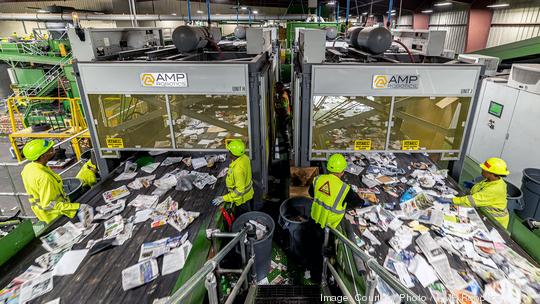
Health technology
BioIntellisense
The Golden-based startup finds itself at an exciting intersection of medical technology and data collection, and the industry is taking notice. In early 2020, BioIntelliSense received FDA clearance for its wearable remote monitoring product. The company has developed a sticker with a 30-day battery life that is able to measure a dozen clinical parameters. And, in July, the company raised a $45 million Series B financing round that will help the company to scale with its growing demand. The company has more than 60 full-time employees and expects to grow to more than 100 at the end of the year.
Rescripted
When Abby Mercado launched Denver startup Best Shot nearly two years ago, her primary goal was to create a medication management platform for fertility treatments. When Covid-19 impacted its work in clinics, Mercado connected with Kristyn Hodgdon of The Fertility Tribe. The two became fast friends and Best Shot and The Fertility Tribe merged to launch Rescripted. The direct-to-consumer company blends Best Shot’s tech-enabled care platform with The Fertility Tribe’s community and digital publishing platform. As the company builds its platform, Rescripted announced the close of an oversubscribed $1.65 million financing round in August.
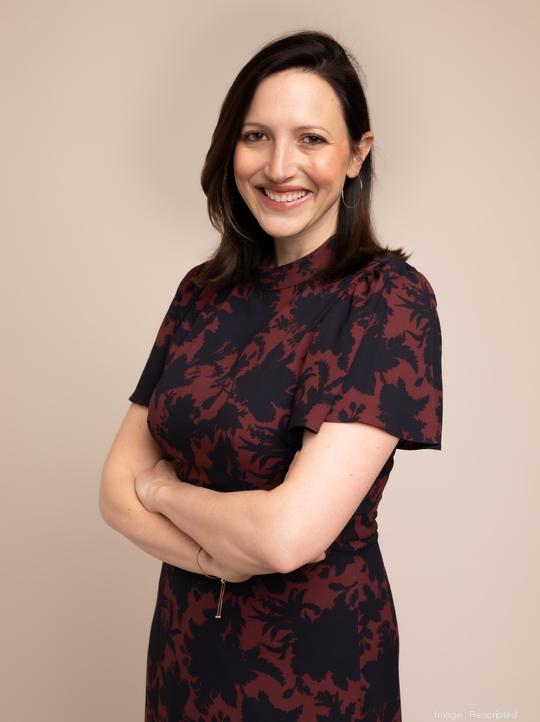
Proov
Colorado-based Proov is trying to do more for women’s health than the fertility testing kit it’s known best for. The company has branched into women’s hormonal health and wellness and recently raised a $6.75 million funding round to back that vision. The company, founded by Amy Beckley nearly five years ago, was also named a finalist for the Colorado Bioscience Association’s “Company of the Year” award.
SonderMind
In its second consecutive year on the list, SonderMind was named a new technology unicorn this year, as the rising star in the behavioral health field now has a $1 billion valuation. The $150 million Series C financing round in July was co-led by new investors Drive Capital and Premji Invest and increased SonderMind’s total capital raised to date to $183 million. SonderMind’s platform matches clients who are a clinical fit with behavioral health experts while handling payments, insurance reimbursement, clinical assessments and more. The company, which launched in 2014, has seen strong growth during the pandemic and expanded its services to 12 states across the country.

Plume
Denver-based Plume is a trailblazer in the transgender health care services field, rapidly expanding access to care for the trans community. In February, the company announced a $14 million Series A funding round led by Craft Ventures. The company, co-founded by Dr. Matthew Wetschler and Dr. Jerrica Kirkley, provides gender-affirming care through the convenience of a smartphone. Since its launch in December 2019, the company has expanded its services to more than half of the states across the country.
CareCar
The tech-enabled benefit administrator and healthcare services platform has caught fire over the last 12 months. CareCar helps people get the services they need to remain independent despite physical or psychosocial factors. In April, CareCar closed a $3 million seed funding round from institutional partners and launched three new health plan partners. CareCar currently manages supplemental health benefits for over 150,000 people in California and North Carolina, and plans to double that number in the coming months.
Inno Picks
Bluestaq
The bootstrapped Colorado Springs-based company launched in 2018 as an enterprise software startup for the space industry and has quickly gained traction. The company’s software pulls together space situational and domain data to form a common operating picture shared by the defense, commercial, allied and intelligence communities. In just a few years, the company has already brought in more than $300 million in government contracts and doubled the size of its team.
Cluejay
Denver-based ClueJay has developed an online diagnostic platform that allows pet parents to access lab tests on demand from home. ClueJay lets dog and cat owners collect and mail stool samples for parasite screening without having to visit vets. Earlier this year, the company was named a grand prize winner of Purina’s 2021 Pet Care Innovation Prize and awarded a cash prize of $10,000.
E2 Optics
Despite the pandemic, Englewood-based telecommunications company E2 Optics had a successful last 12 months, in part due to its increased focus on its core values and customers. The company reported double-digit revenue growth over the previous year and once again landed a spot on the Inc. 5000 list of fastest-growing companies at No. 4,309. The IT solutions provider was founded by Kristi Alford-Haarberg in 2010 and has grown to more than 700 employees.
Highwing
Led by well-known Colorado entrepreneur Erik Mitisek, Denver-based Highwing specializes in open data software to help commercial insurance brokers and carriers accelerate their workflows. The company spun out of IMA Financial Group in November with a $4 million seed round and has quickly doubled the size of its team. Highwing’s software is built to make it easy to connect to, exchange data and have access to information to contribute to the overall value of a transaction.
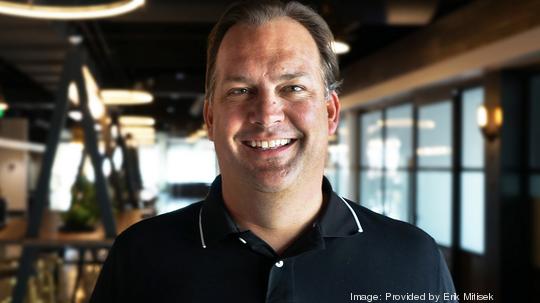
eBodyGuard
Denver-based eBodyGuard, a tech company founded in 2018, has created a free safety technology available in the App Store and Google Play. The company’s voice-activated 911 technology collects audio evidence to ensure chain of custody from the scene to law enforcement and to the courts. The tech also connects with 911 authorities in remote areas without cellular service and is accurate within 12 feet. eBodyGuard has several law enforcement clients in Colorado and is partnering with law enforcement agencies in Texas for new pilots.
Qrails
In January, cloud-based payment solutions startup Qrails announced that Brian Brinkley was appointed as CEO. The Google Wallet co-founder has been a key member of the QRails leadership team since 2019, previously serving as chief technology officer. The company has also added more than 30 employees this year as it scales its platform across North America, Latin America and Europe.
Impulsify
Despite Janine Williams’ position as a “reluctant software CEO,” she has successfully built Denver-based Impulsify since its 2013 founding. Impulsify has created a standard point-of-sale tool to automate many of the processes involved with retail stores at hotels. As a result, front-desk employees can focus more on the check-in and check-out process. The company’s technology is used in more than 1,000 hotels nationwide and Impulsify is considering bringing on capital for the first time in its history.
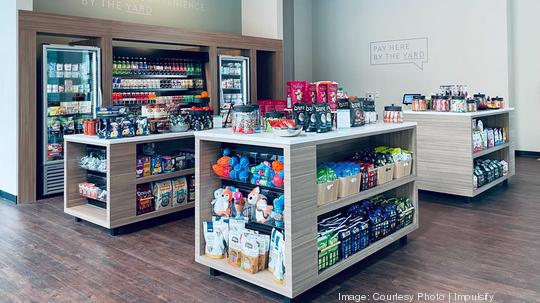
Brandzooka
In the last year, the self-service digital advertising platform for brands and agencies has brought on a new CEO and a round of funding to fuel its growth. The Boulder-based company, founded in 2015 by Alex Bogusky and Kelly Dotseth, makes it possible for companies and agencies of any size to place targeted ads on primetime TV and premium digital properties worldwide for as little as $5. The $5.6 million Series A brought Brandzooka’s total funding to $10.1 million. Dotseth was promoted to CEO at a busy time for the company, as Brandzooka reported that its monthly recurring revenue had tripled since the beginning of 2020.
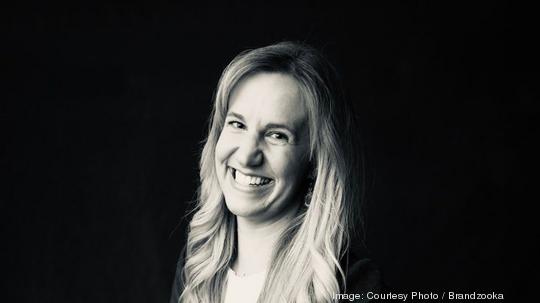
Lifestyle
The Last Gameboard
After two years of building a tabletop gaming platform with a digital flair, Denver startup The Last Gameboard brought on capital this year to push its production over the finish line. The company closed a $4 million seed round in May led by TheVentureCity. That round brought The Last Gameboard’s total funding to $4.8 million. Since launching in January 2019, The Last Gameboard has been building a portable, 3D touch tabletop game product for gaming fanatics. The 16-by-16-inch Gameboard’s internal technology can bring your favorite board games to life.

Clmbr
The connected fitness startup has exploded onto the scene over the last year thanks, in part, to a star-studded cast of celebrity investors. CLMBR offers an efficient, full-body, low-impact climbing workout that burns up to 60% more calories than cycling, rowing and running, the company said. It's also the first vertical climber to feature a large-format touch display with on-demand, instructor-led classes. The company’s backers include musicians Jay-Z and Pitbull, tennis champion Novak Djokovic and YouTube co-founder Chad Hurley, among many others.
Atost
The aperitif drink brand launched in late 2020 as a lighter, fresher spirit offering and has quickly found its footing in Colorado. Atost was founded by Kyle and Cindy Pressman and is meant to taste somewhere between a wine and a spirit. The company has launched a line of its products and opened a tasting room in Golden in the last year.
Pit Liquor
In search of a non-toxic and effective deodorant, Erica and Jason Feucht launched Pit Liquor out of their house nearly five years ago. After much research and development, Colorado-based Pit Liquor now offers a line of natural deodorants made from edible ingredients in whiskey and vodka. In an effort to further grow their business, Pit Liquor opened a crowdfunding investment round on Wefunder late in 2020. The campaign closed this spring, garnering more than $550,000 in funding from 660 investors.

Wander + Ivy
Single-serve wine company Wander + Ivy has caught fire in 2021, as the company has reported 250% year-over-year revenue growth, tripling of its wholesale distribution and closed $1.75 million in its latest round of funding. The company’s glass packaged bottles can now be found in Whole Foods, Natural Grocers, Kroger, Safeway, Walmart and more retailers across the country. Dana Spaulding has led the company since its founding in 2017 and raised nearly $3.35 million in outside venture capital.
Popongo
Prior to the pandemic, Errol Anderson and his friends bonded over games like basketball. When Covid-19 forced them to abandon those games, Anderson sought a way to fill that social gap. So, earlier this year, he launched the backyard game Popongo. The idea combined a couple of games, think skee-ball crossed with cornhole. In Popongo, players take turns tossing foam balls into cups, on a platform, which have different point values. There are nine cups with values from six to one point and 10 balls split between two teams. After nearly eight months of planning, prototyping and building, Anderson sold his first Popongo set in December. The company builds and distributes the $159 set from Denver and plans to continue that in the future.

Outdoors
Hike Doggie
Dog owners know the importance of providing their pets with exercise and Denver-based Hike Doggie is trying to facilitate that playtime. The company grew throughout the pandemic by offering half-day trips for client’s dogs. The company picks up the pets at their home, drives them in their vans to an outdoor hike or walk and drops them off when they’re done. The company now hikes more than 600 dogs per month and is quickly growing.
Harvest Hosts
Joel Holland, a former D.C. technology entrepreneur, took over Harvest Hosts nearly three years ago and has guided the RV travel company through a period of immense growth. Harvest Hosts is a club for RVers offering unique overnight stays at farms, wineries, breweries, distilleries, golf courses and other small businesses across North America. As pandemic forced more people to consider outdoor-themed vacations, Harvest Hosts saw its business boom. Earlier this year, the company brought on a $37 million growth investment from private equity firm Stripes aimed at growing its host network and expanding its membership base.
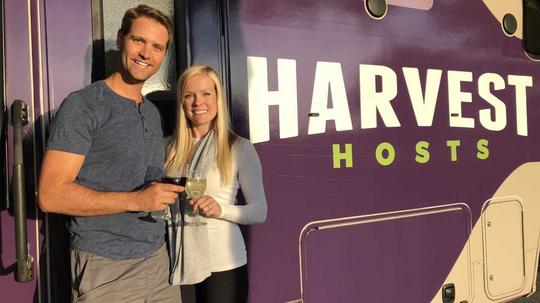
Sunday
When Covid-19 forced office closures, people increasingly shifted to their home offices. No longer were they seeing bustling city streets outside of their office windows; they looked out on their lawns. With more eyes on the grass, DIY lawn and garden startup Sunday felt a boost in the last 12 months. The company announced a $19 million Series B fundraise in December led by Sequoia Capital, with participation from Tusk Ventures and Forerunner Ventures. The round brought Sunday’s total funds raised to date to $28 million. Despite the pandemic, Sunday experience nearly eight times revenue growth in 2020 compared to 2019, the company’s first year on the market.
The Pro's Closet
The past year has marked a crucial turning point for Colorado-based The Pro’s Closet. The company, which buys and sells pre-owned bicycles, experienced tremendous growth in 2020 and moved into a new facility in Louisville to accommodate its plans. With the demand for bikes skyrocketing during Covid-19, the company saw its sales double; and recently appointed CEO John Levisay said The Pro’s Closet realized the opportunity it had to accelerate the business In order to facilitate that growth, the company brought on a $40 million Series B funding round in May, led by The Chernin Group with participation from existing investors Foundry Group, Edison Partners and Ridgeline.
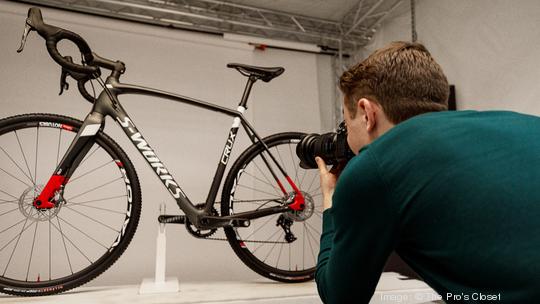
Outside
The Boulder media company grew its footprint in the active lifestyle space this year, raising $150 million in equity funding to fuel five acquisitions. The company, formerly named Pocket Outdoor Media, announced the acquisitions in February to expand its audience and range of coverage. To back those acquisitions, Pocket Outdoor brought on a $150 million Series B round from Sequoia Heritage, JAZZ Ventures, Zone 5 Ventures and NEXT Ventures.
Collective Retreats
As the pandemic spurred an increased interest in its glamping offering, Denver-based outdoor luxury startup Collective Retreats raised a $23 million Series C funding round in June. The round was led by New York-based investment firm Fireside Investments, outdoor marketplace Outdoorsy and featured participation from existing investors including Revolution's Rise of the Rest Seed Fund. Collective Retreats is an outdoor travel company that offers luxury tents and experiences at its locations. The company offers on-site activities, like horseback riding, meals from local chefs and personalized hospitality services.

Catalyst (an organization moving the industry or ecosystem forward)
InterviewIA
For nearly 15 years, Joe Thurman advised companies on removing bias from their hiring processes. About five years ago, he brought together a team of consultants to help Denver’s largest technology companies, including Dish Network (Nasdaq: DISH) and Angi Inc. (Nasdaq: Angi), transform their hiring processes, adding tangible data to rank their interviews. In July 2020, the group launched a software startup, InterviewIA, that incorporated its previous manual work onto a digital platform to help remove bias from hiring. And, in April, the company raised nearly $2.2 million in seed funding.
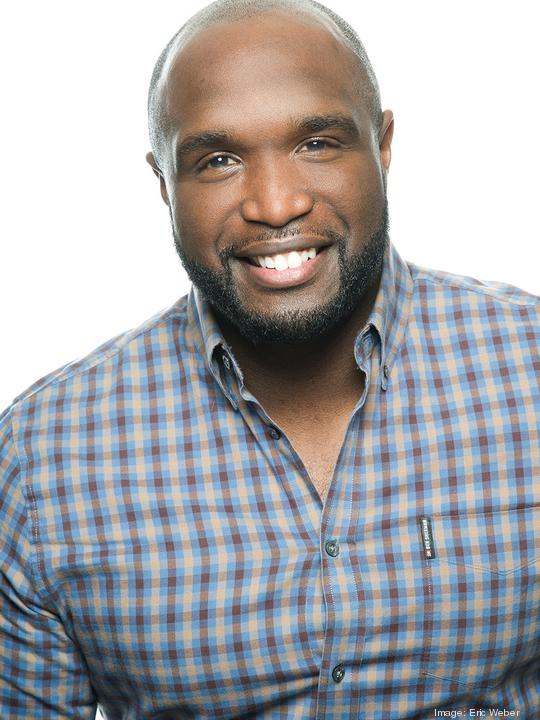
Paired
As Covid-19 has limited community interactions, Denver-based Paired has stepped up to help foster connections across Colorado’s startup ecosystem. Paired is a curated community that connects people with local startup leaders to grow their careers and companies. Over the last 12 months, the company has also hosted a variety of events designed to bring Colorado’s startup community together.
Range Ventures
Since raising its initial $23 million funding in December, Range Ventures has been an active investor in Colorado’s early-stage technology ecosystem. The venture firm, founded in March 2020 by Adam Burrows and Chris Erickson, has built a network of limited partners that have built, run and invested in many successful companies in the greater Denver area. Those companies include ANGI Homeservices, EverCommerce, Ibotta, Guild Education, Ping Identity and Datalogix.
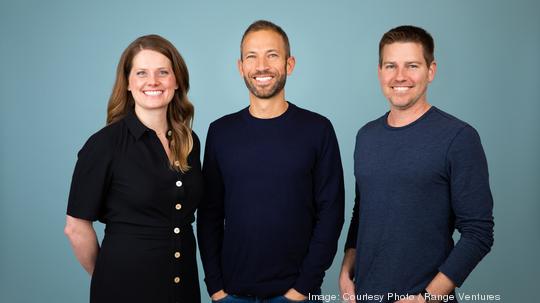
Rockies Venture Club
As one of Colorado’s most active investors and one of the longest-running angel investor groups in the country, Rockies Venture Club has been busy over the last year. The group is on track to make 30 investments in 2021 and has placed a higher priority on diversity efforts. And, in September, RVC launched a new accelerator program focused on startups that are innovating to address future pandemics. The RVC Pandemic Tech HyperAccelerator was designed to identify and grow innovators that are addressing the social, health, business, education and economic impacts of coronavirus, and future pandemics.
Blackstone Entrepreneurs Network
In July, Colorado's Blackstone Entrepreneurs Network (BEN) announced its establishment as a nonprofit, while also securing a grant focused on diversity and inclusion. The $900,000 grant allows BEN to continue its mission of serving Colorado's entrepreneurial ecosystem, with an enhanced commitment to diversity and inclusion in the network.







